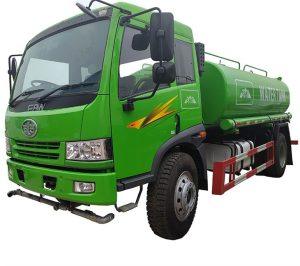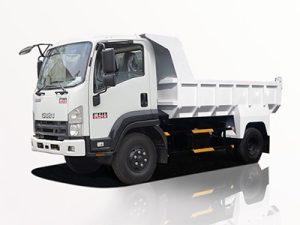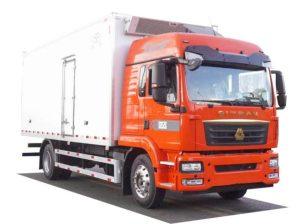Monday to Saturday - 8:00 -17:30
How Much Fuel Does a Gas Truck Hold? A Comprehensive Guide
Understanding the fuel capacity of gas trucks is essential for both consumers and commercial drivers. Fuel capacity influences everything from the truck’s range to its operational efficiency. In this article, we will delve into various aspects of gas truck fuel capacities, providing detailed insights, practical tips, and examples to help you better understand this topic. Whether you’re considering purchasing a gas truck or are simply curious, this guide has you covered.
1. Understanding Fuel Tank Capacity
Fuel tank capacity refers to the maximum amount of fuel a vehicle can hold. For gas trucks, this number can vary significantly based on the make, model, and intended use of the truck. Understanding why these differences exist helps in making informed decisions.
1.1 Why Fuel Capacity Matters
- Range: The larger the fuel tank, the farther you can travel without refueling.
- Efficiency: Longer routes mean fewer stops, which can save time and money.
- Operational Costs: Larger tanks can mean fewer trips to the gas station, affecting overall fuel expenses.
1.2 Factors Influencing Fuel Tank Size
Several factors can influence the fuel tank size of a gas truck, including:
- Truck Type: Pickup trucks generally have smaller tanks compared to box trucks or commercial vehicles.
- Engine Size: Larger engines typically require larger fuel tanks to ensure optimal performance.
- Manufacturer Specifications: Different brands may offer varying capacities even within the same category.
2. Average Fuel Capacities for Common Gas Trucks
To give you a clear understanding of fuel capacities, here is a table detailing average fuel tank sizes for several popular gas trucks available on the market.
| Truck Model | Fuel Tank Capacity (Gallons) |
|---|---|
| Ford F-150 | 23 to 36 |
| Chevrolet Silverado 1500 | 22 to 28 |
| Dodge Ram 1500 | 26 to 32 |
| Toyota Tundra | 26.4 |
| Nissan Titan | 26 |
2.1 Heavy-Duty Trucks
For heavy-duty trucks, the fuel tank capacity is significantly larger to support long-haul journeys. Models like the Ford Super Duty or the Chevrolet Silverado HD can hold anywhere from 30 to 50 gallons or more.
3. Fuel Efficiency Considerations
Fuel capacity is just one piece of the puzzle. Fuel efficiency also plays a crucial role in overall vehicle performance.
3.1 What is Fuel Efficiency?
Fuel efficiency refers to how well a vehicle utilizes fuel, usually measured in miles per gallon (MPG). Understanding this concept helps you calculate the impact of tank size and how often you’ll need to refuel.
3.2 Calculating Your Range
To estimate how far you can go on a full tank of gas, use the formula:
Range = Fuel Capacity (Gallons) x Fuel Efficiency (MPG)
Example: If you have a truck with a 30-gallon tank and it gets 15 MPG:
Range = 30 x 15 = 450 miles
4. Choosing the Right Gas Truck
When selecting a gas truck, fuel capacity should be one of several criteria to consider.
4.1 Usage Needs
Determine how often you’ll use the truck and the distances you plan to travel. If you’re mostly doing city driving, a smaller tank may suffice, while long-distance hauliers will benefit from a larger tank.
4.2 Other Key Features
- Payload Capacity: The amount of weight a truck can safely transport.
- Towing Capacity: Relevant for those who plan to tow trailers or boats.
- Comfort and Safety Features: Driving convenience and security may also influence your decision.
5. Tip: Maintaining Fuel Efficiency
Here are some practical tips to enhance your truck’s fuel efficiency:
- Regular Maintenance: Keep your engine in top shape with regular oil changes and tune-ups.
- Tire Pressure: Ensure your tires are properly inflated; under-inflation can decrease efficiency.
- Driving Habits: Gradual acceleration and braking can improve MPG dramatically.
6. Conclusion on Gas Truck Fuel Capacity & Efficiency
The balance between fuel capacity and efficiency is crucial for maximizing the utility of gas trucks. Each gasoline truck has unique characteristics, from its size and model to its intended use, which can significantly affect its performance and operational costs.
FAQ
1. What is the average fuel tank size for a gas pickup truck?
The average fuel tank size for gas pickup trucks ranges from 20 to 36 gallons, with variations in models.
2. Can I increase the fuel capacity of my gas truck?
Yes, it’s possible to upgrade to a larger fuel tank; however, ensure compatibility with your vehicle and comply with local regulations.
3. How does fuel tank size affect towing capacity?
A larger fuel tank may provide more extended travel options, but it does not directly impact towing capacity, which is determined by the engine and chassis.
4. Do heavier trucks use more fuel?
Generally, heavier trucks consume more fuel due to the increased power required for movement; however, fuel efficiency can vary based on the engine and driving conditions.
5. How often should I check my truck’s fuel efficiency?
It’s good practice to check your fuel efficiency regularly to identify any drops in performance, which could indicate maintenance needs.
6. Is a larger fuel tank better for everyday use?
A larger fuel tank can be beneficial for longer trips, but for daily city driving, smaller tanks are often more practical and lighter.









